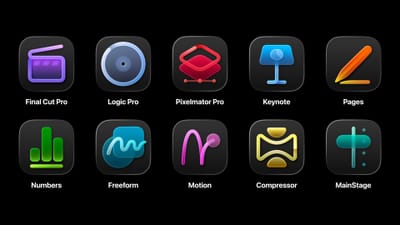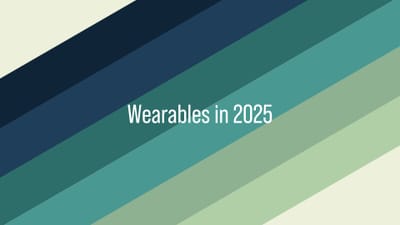This was the best iPhone event in years
I've had a little time to sleep on it, and I think yesterday's iPhone update is set to be the best year-on-year upgrade to the iPhone line in many years. This stands in contrast to previous years where, for example, the iPhone 16 lineup was basically a spec bump and a new button that most people think is over-engineered, or the iPhone 15 line, which did improve the industrial design with titanium but didn't change the actual functionality significantly. Then there was the iPhone 14, which was literally just a repackaged iPhone 13 with almost zero other updates. Yes, there have been good updates in the mix, but we've certainly moved on from the era when one year's iPhone was significantly more compelling than the previous year's model. Hell, in my iPhone 16 Pro review on YouTube last year, I said that smartphones have entered their laptop era, where these iterative updates are pretty much what we can expect year over year. What's notable about yesterday's event is that Apple released three new iPhones, all of which I think represent pretty significant upgrades over last year's models.
Let's start with the iPhone 17, the base iPhone, which got a lot of the features that Pro phones have had for a while and have really frustrated people like me who pay attention to more than just Apple and understand how far behind the curve Apple was on some core technology for their $800-1,200 iPhone lineup.
In addition to the spec bump we would expect with the new processor, Apple also gave this phone ProMotion, increased the base storage to a very reasonable 256GB, and kept the price exactly where it is. They made significant updates to both the rear and front cameras, and this is just a pretty outstanding new iPhone that honestly has very few compromises. I think it's a meaningfully better product than what Apple has been selling with the iPhone 16.
Then there's the iPhone Air, which, as I wrote yesterday, is not the logical phone for almost anyone to buy. But it is a cool phone. Every single person I have seen who has actually held it is completely blown away by its existence. And while they all seem to say it's not the phone for them, I can definitely see people going to an Apple store, picking up this phone and thinking, damn, this is something new and exciting. How many of them will actually buy it? I don't know, but I think it is a genuinely cool phone that makes trade-offs that aren't right for me and probably aren't right for you, but they're very interesting. And just like the MacBook Air many years ago, one may expect that in time, the trade-offs required to achieve a form factor like this will ease up, and this could become the norm, which I think is pretty cool. Say what you will about the practicality of this phone, but it's not boring.
Which brings us to the iPhone 17 Pro, which feels like Apple has given themselves permission to just go all out with this device.
It seems like their thinking is that the iPhone 17 is a good purchase for almost anybody, and the iPhone Air will fill the gap for people who bought the Pro phone because they wanted a nicer iPhone, not necessarily ProRes video and all of the enhanced technology of the Pro devices. These new Pro phones are the antithesis of the iPhone Air. They are function first and foremost, and they cram as much raw technology as they can into the form factor. It really feels like Apple has found success getting the iPhone Pro lineup into the hands of filmmakers and creators because that's really what they've leaned into significantly over the past few years, and it was cranked up to 11 at this year's event. To be clear, I think that much like the Apple Watch Ultra, this model will sell to many people who don't need these features and just like having a bomb-ass phone with crazy battery life, but Apple's split the Pro buyer segment in two: people who want the sleekest iPhone and those who want the powerhouse iPhone.
The ability to shoot ProRes RAW is very powerful for video creators who need control over their footage, and even features like being able to synchronize dozens of iPhones so that you can do shots such as bullet time slow-mo is just remarkable.
That doesn't mean you're going to buy a hundred iPhones and recreate The Matrix yourself, but it does differentiate the iPhone from other premium phones on the market, and for the right audience, it is a significant upgrade that makes this a no-brainer for them and could unlock new possibilities in their workflows. When I think about this year's upgrade compared to last year's iPhone 16 Pro upgrade, which was a really minor change (basically just, do you want a camera button?), this feels quite significant.
We should, of course, reserve final judgment until we have actual units in hand and can review them. But I came out of this event more excited about the new iPhone hardware than I have been in many years. And I wanted to give a shout-out to that feeling because we don't get it that often in the current world of smartphones.

